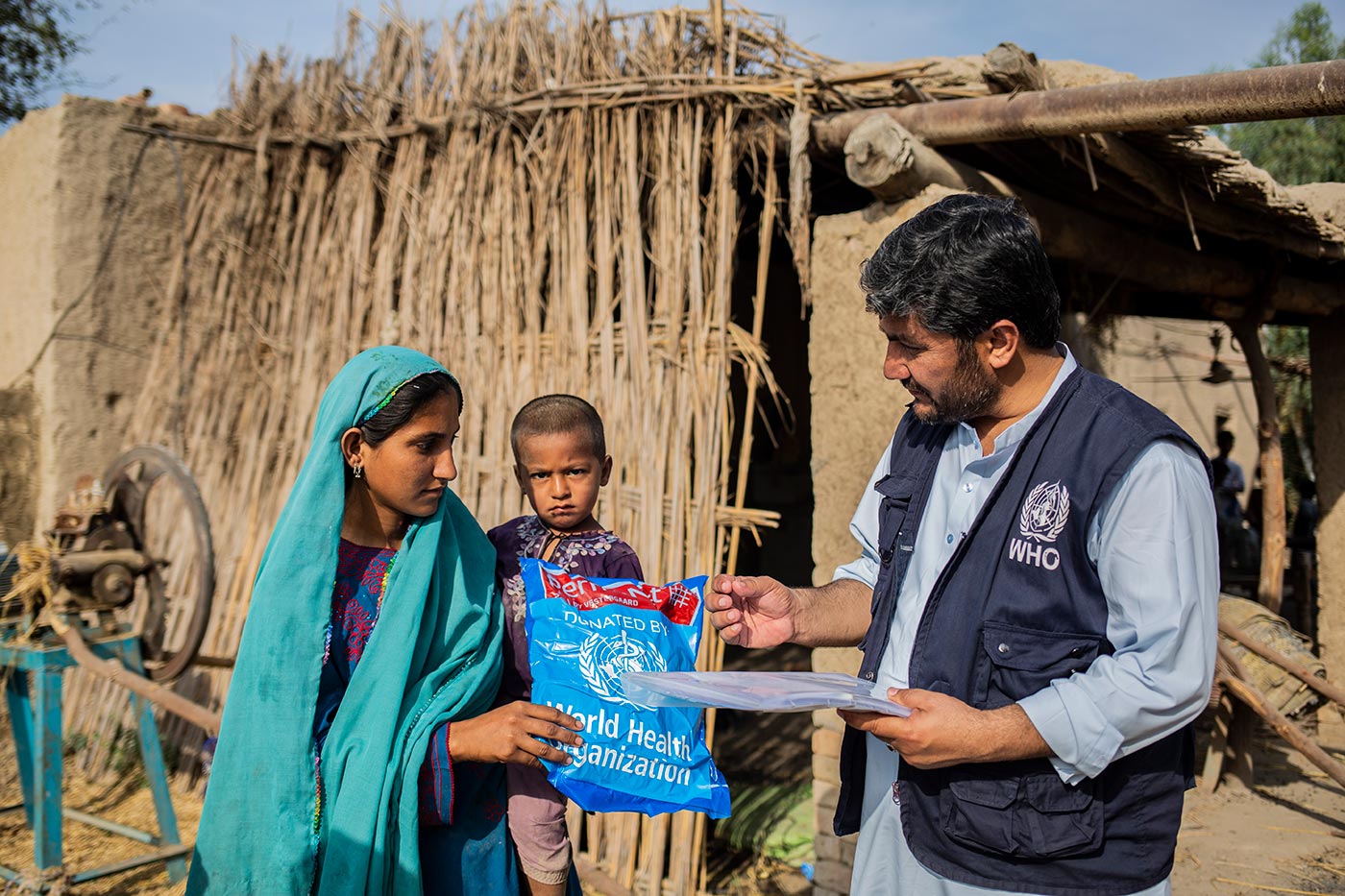 WHO staff distributing mosquito nets to prevent malaria in Balochistan in 2023 following the 2022 floods. Photo credit: WHO24 April 2025, Islamabad, Pakistan – On the occasion of World Malaria Day, observed on 25 April, the World Health Organization (WHO) and Pakistan’s Ministry of National Health Services are warning that climate change is worsening the impact of malaria in the country amid over 2 million cases reported annually. WHO and Pakistan are calling on all stakeholders to urgently intensify efforts to contain the increasing threat to the country and the Region.
WHO staff distributing mosquito nets to prevent malaria in Balochistan in 2023 following the 2022 floods. Photo credit: WHO24 April 2025, Islamabad, Pakistan – On the occasion of World Malaria Day, observed on 25 April, the World Health Organization (WHO) and Pakistan’s Ministry of National Health Services are warning that climate change is worsening the impact of malaria in the country amid over 2 million cases reported annually. WHO and Pakistan are calling on all stakeholders to urgently intensify efforts to contain the increasing threat to the country and the Region.
“Malaria is a major global threat, and we are seeing firsthand how climate change is increasing both the risk and the cases in our country. Despite challenges, Pakistan is fully committed to end this disease. It is not just a health imperative – it is an investment in a healthier, more equitable, safer, and more prosperous future for every nation,” said Pakistan’s Federal Health Minister Syed Mustafa Kamal.
Under the international theme “Reinvest, reimagine, reignite,” WHO is urging all stakeholders to join the Big Push to End Malaria and support Pakistan to ensure that the response is not jeopardized due to lack of resources.
The catastrophic 2022 floods in Pakistan led to 6.6 million additional cases over the 3-year period from 2022 to 2024 – including a peak of 2.7 million cases in 2023, compared to 399,097 cases in 2021. As a result, the malaria burden in the WHO Eastern Mediterranean Region surged with an estimated 10.2 million cases reported in 2023, a 137% increase compared to 2015.
Despite challenges, significant progress has been made throughout the last decade in terms of prevention and treatment. In partnership with WHO – and with funding support from the Global Fund to defeat HIV, tuberculosis (TB) and malaria – in 2024 Pakistan screened over 11.4 million malaria suspects and provided treatment to 2 million confirmed malaria patients. In addition, 7.8 million insecticide treated nets were distributed across 22 high-malaria burden districts of the country, helping to reduce the number of cases from 2.7 million in 2023 to 2 million in 2024.
“WHO is proud to partner with Pakistan to continue saving lives by preventing and treating malaria. We have proven that investing in malaria response saves lives, but we are also seeing how climate change is hampering progress, posing a threat not only for Pakistan, but also for the Region and the world. We know how to end malaria, and we can do it if all stakeholders invest and work together to reinforce the response and adapt to the new risks triggered by climate change,” said WHO Representative in Pakistan Dr Dapeng Luo.
Climate change and associated impacts such as increasing temperatures and floods have triggered an upward trend in cases and a significant risk of outbreaks in Pakistan, according to data from 5 575 medical facilities located in the 80 endemic districts. The upward trend is reinforced by other multidimensional factors such as increasing poverty, lack of access to quality essential diagnostic and treatment services, and the deteriorating security situation in Balochistan, tribal districts and Khyber Pakhtunkhwa, as well as health-care access limitations in Sindh province.
Evidence indicates that malaria control efforts pay off. Sustained and coordinated action will be crucial to mitigating the impacts of climate change, saving lives, and building a more prosperous future for Pakistan.
About WHO
Founded in 1948, WHO is the United Nations agency that connects nations, partners, and people to promote health, keep the world safe and serve the vulnerable. We work with 194 Member States in 150+ locations – so everyone, everywhere, can attain the highest level of health. For more information, visit https://www.emro.who.int/countries/pak/index.html. Follow WHO Pakistan on Twitter and Facebook.
For additional information, please contact:
Maryam Yunus, National Professional Officer – Communications, WHO Pakistan, This e-mail address is being protected from spambots. You need JavaScript enabled to view it (copying This e-mail address is being protected from spambots. You need JavaScript enabled to view it )
José Ignacio Martín Galán, Head of Communications, WHO Pakistan, This e-mail address is being protected from spambots. You need JavaScript enabled to view it




